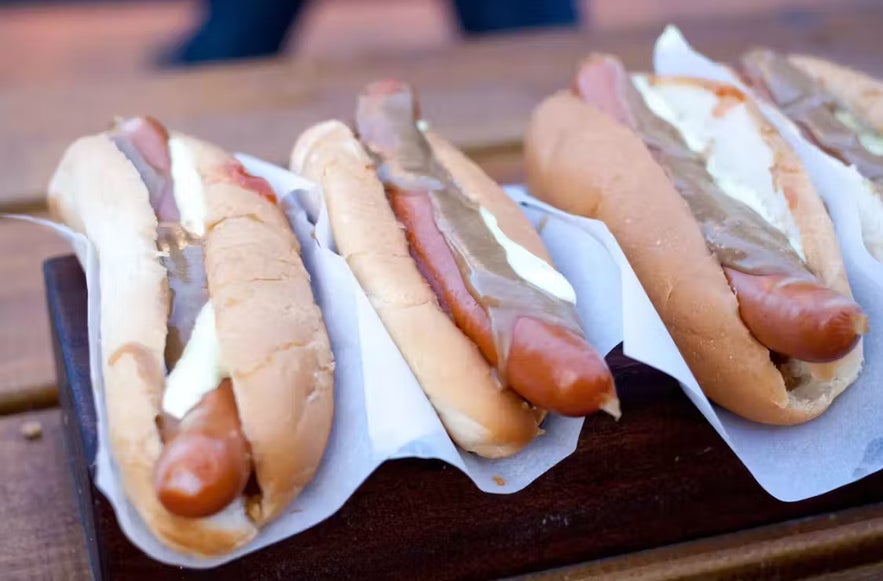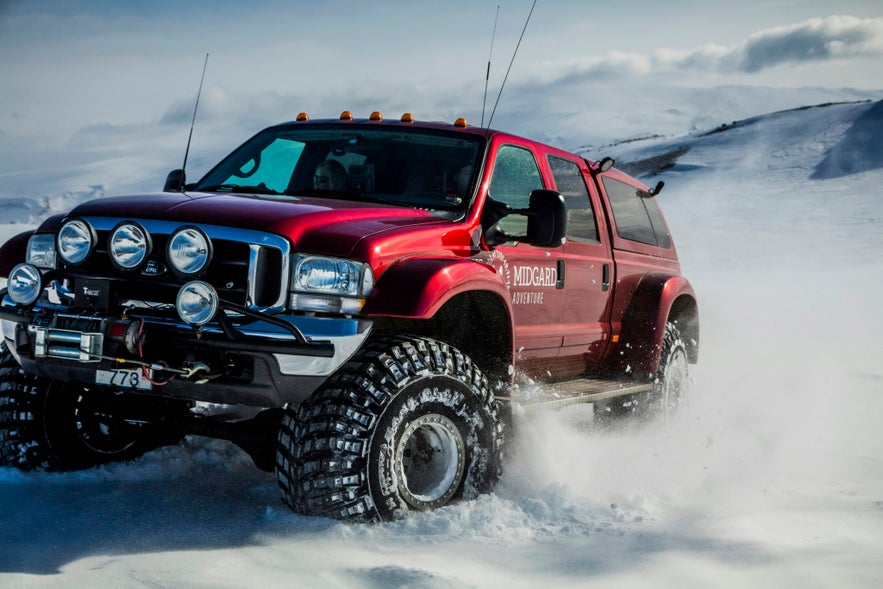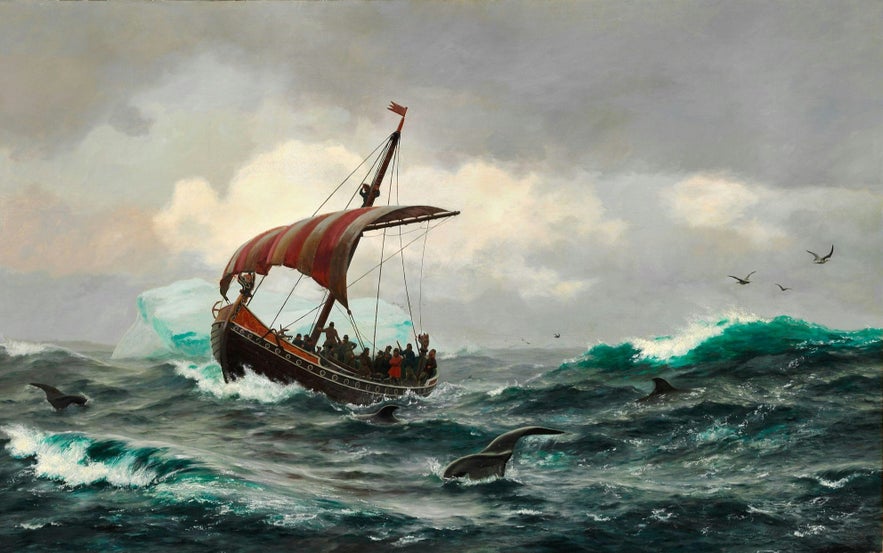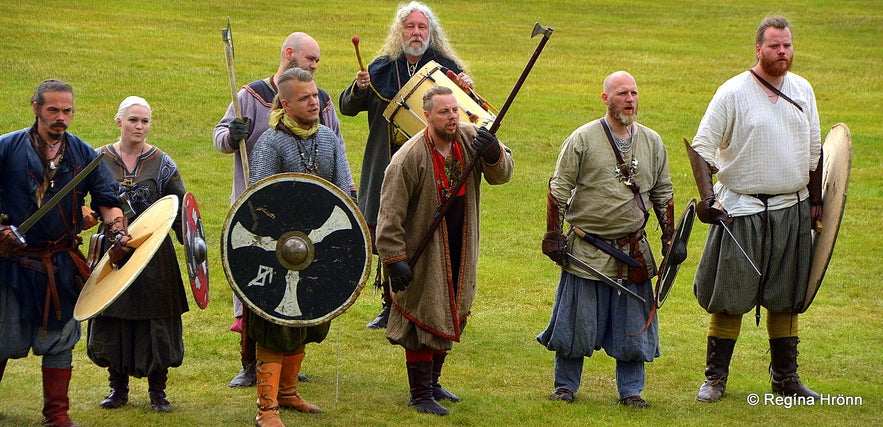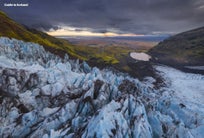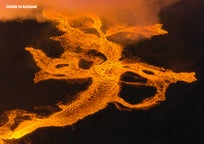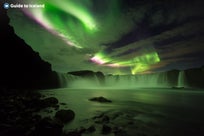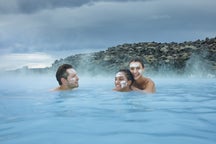
The 10 Weirdest Things About Icelandic People and Culture

- 10. People in Iceland Usually Don't Have Family Names
- 9. Icelanders Banned Beer Until 1989
- 8. People in Iceland Are Passionate About Sauce
- 7. Icelandic People Sometimes Speak on Inhalation
- 6. Icelanders Grill All Year Round
- 5. People in Iceland Have a Unique Sense of Humor
- 4. People in Iceland Have a Lot of Monster Trucks
- 3. Icelanders Are Naked and Unafraid
- 2. The People of Iceland Come From Viking Settlers from 1000 Years Ago
- 1. Iceland Is the Best in the World! (per capita)
Explore the oddest things about the people in Iceland and Icelandic culture. Find out if there's truth behind all the weird things written about Iceland online. Like any country, the inhabitants of Iceland have some distinct traits others may find peculiar. Read on to find out why these quirks only add to the charm of Icelandic people.
When you read about strange things in Iceland, you'll notice that they mainly focus on how many native Icelanders still believe in elves, how they have 13 terrifying trolls instead of one jolly Santa during Christmas, and how they eat disgusting food.
Although all of this is true, at least to a degree, these facts are becoming old news at this point. Also, people in Iceland are tired of foreigners constantly referring to their cuisine as "disgusting." They prefer to say it's traditional and that "it's an acquired taste."
Therefore, this list will delve into lesser-known and recent Icelandic oddities. If you want to get to know this side of Iceland better, book a hotel in Iceland and check out the many culture tours we have available.
How weird you'll find the items on this list will, of course, depend on your country of origin. Travelers of different nationalities often have entirely different concepts of what makes Icelandic people and culture unusual. One of the best ways to explore the country is on a self-drive tour in Iceland and take time to get to know all the weird things you'll find on your way.
However, this top 10 list should help show the traits that make Iceland and Icelandic culture seem odd the world over.
10. People in Iceland Usually Don't Have Family Names
Although a few family names exist in Iceland, primarily Danish, they're rare and usually originate from foreigners marrying into an Icelandic family.
For most people in Iceland, their last name is patronymic; in other words, it's composed of their father's first name with the suffix -dottir (-daughter) or -son attached. This system means that a family member will have a different last name from both parents and siblings of a different gender.
Women also do not change their names when they get married (because they don't become the "son" of their husband's father).
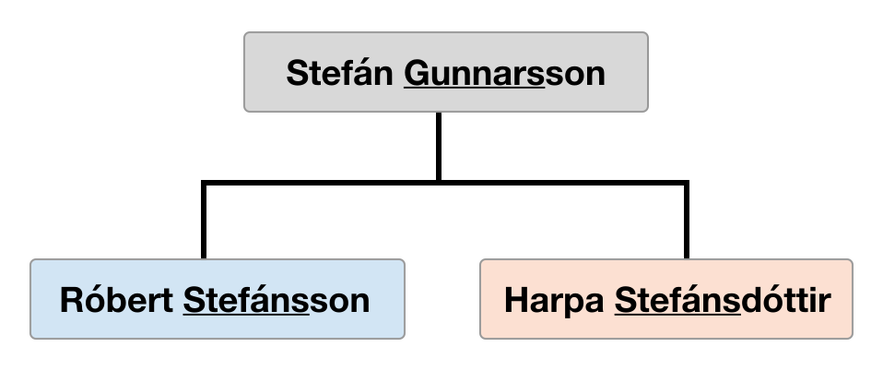
Everyone in Iceland is called by their first name, including teachers, doctors, celebrities such as Bjork (Gudmundsdottir), or even our presidents and prime ministers. While calling everyone by their first name lacks formality, it does help foster a dialogue with a less stuffy hierarchy.
Using titles such as Mr., Mrs., Miss, or Dr. is uncommon, even for foreigners. Do not get offended if an Icelander doesn't know your last name or continues to call you by your first name, even if they do know it.
- See also: The Björk Saga
9. Icelanders Banned Beer Until 1989
 Photo from Small-Group 3-Hour Guided Walking Tour in the Heart of Reykjavik
Photo from Small-Group 3-Hour Guided Walking Tour in the Heart of Reykjavik
For a country whose inhabitants seem to love their alcohol, it's a surprise even to younger residents that beer was banned in the whole country for nearly 75 years until March 1, 1989.
The end of this dark chapter of Iceland's history has been forever immortalized in a day of celebration. Iceland's "Beer Day," Bjordagur, is celebrated annually on March 1, when it seems everyone in Iceland hits the town for a few pints of liquid gold.
To this day, alcohol can still only be purchased at Keflavik International Airport and in Vinbudin, the state-run alcohol stores, often given the Orwellian nickname "Rikid" (or "The State"). You can also get to know Icelandic beer on many food & drinks tours around the country.
- See also: Happy Hour | Reykjavik's Cheapest Bars
8. People in Iceland Are Passionate About Sauce
Photo from Appetizing 3-Hour Food And Beer Walk Tour Around Reykjavik's Local Food Destinations
Icelanders love to coat all their food in sauce, especially gravy, bearnaise sauce, and whatever other various dipping condiments are within arm's reach. Sauce truly is part of daily life in Iceland.
Believe it or not, there's a unique sauce for everything in Iceland. Even though the meat, fish, and vegetables are of a high standard, they get even better when covered in your favorite dressing. Icelandic people have specific sauces for pizza, pitas, fries, chips, vegetables, hamburgers, hot dogs, and different sauces for fish, meat, and poultry.
As for sauces on ice cream, Iceland has those, too! Chocolate, luxury chocolate, caramel, licorice, and one for almost every fruit are the most popular choices.
Sure, people use and abuse sauces in other countries, but not quite to the same degree as Icelandic people. Even the Brits, who love their gravy and ketchup nearly as much as their tea, may find the number of sauces in Iceland overwhelming.
The toppings for a mere hot dog in Iceland include three different sauces: ketchup, hot dog mustard (which is a type of sweet mustard), and "remuladi" (remoulade), a mayonnaise-based sauce that is almost exclusively used for this tasty treat.
Additionally, people in Iceland put two types of onion on hot dogs, raw and crunchy. For a traditional Icelandic hotdog or "pylsa," simply answer "everything" when asked what you want on your hot dog. You won't be disappointed!
7. Icelandic People Sometimes Speak on Inhalation
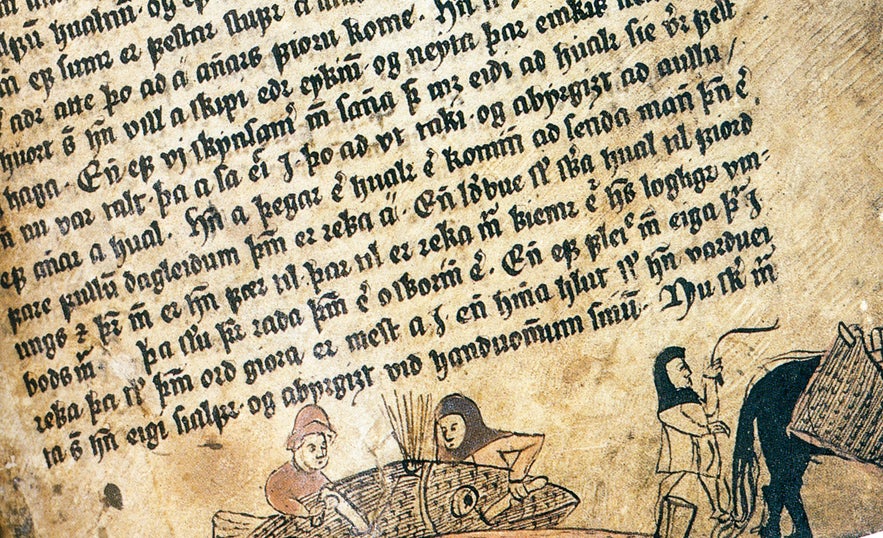
People in Iceland sometimes speak on inhalation - that initial breath we unconsciously take when opening our mouths to speak. This habit is most common when Icelanders say "já" or "nei," which means "yes" and "no" respectively, or "jæja," which is a flexible word with multiple meanings depending on the situation.
This quirk is something most foreigners will notice and might mention when they visit for the first time. There's no need to act surprised if you hear it; it's just a way of the tongue, not an offended gasp.
Most often, Icelanders speak on inhalation when they're saying something they assume is obvious or should be taken as a given. Like if someone asks if you got the house keys as soon as you step out the door, you can answer on the inhale "já." Almost as if it's something so obvious it barely deserves to be spoken out loud.
It's surprisingly challenging for people who have never spoken this way, although that is hardly unusual for the Icelandic language.
- See also: Icelandic Proverbs & Sayings
6. Icelanders Grill All Year Round
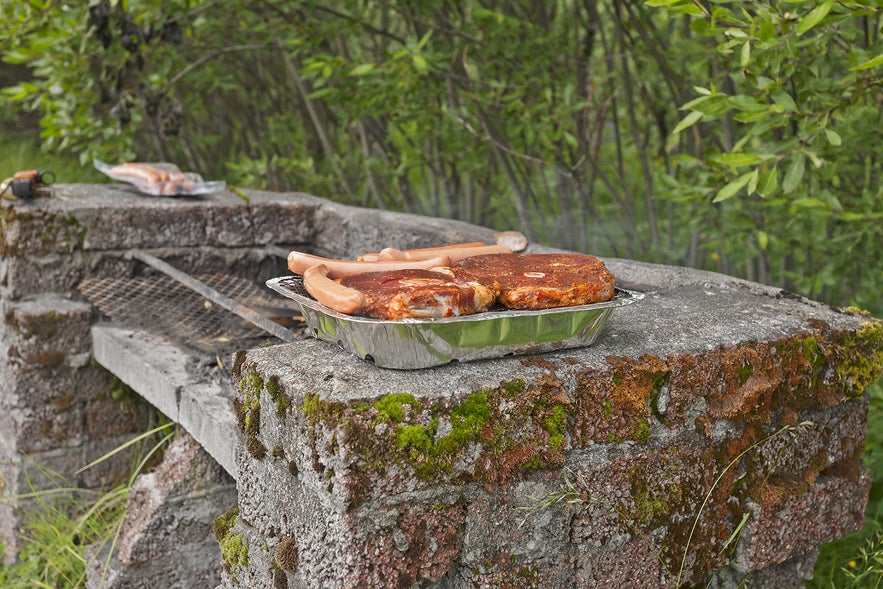 Even if it's freezing and stormy outside, people in Iceland are known to enjoy grilling in any weather, almost behaving as if they lived beneath the blistering Australian sun instead of the chilly Nordic sky.
Even if it's freezing and stormy outside, people in Iceland are known to enjoy grilling in any weather, almost behaving as if they lived beneath the blistering Australian sun instead of the chilly Nordic sky.
Come rain or shine, Icelandic people want to enjoy lamb, fish, and skewers grilled over a burning hot grill. A stove or an oven will simply not suffice. And then, of course, smothered in their favorite sauces.
Beyond simple barbeques, ice cream is also a part of daily life in Iceland (and not just because it has "ice" in the name). That's right. Icelanders also eat ice cream all year round. When the weather is as volatile as it is in Iceland, there's no point in waiting until a hot and sunny day in July to enjoy your favorite treats with family and friends.
It's also a frequent tradition of Icelandic people to partake in "isbiltur" or an "Ice Cream Joyride." These are usually cute dates for couples or parents taking the kids out of the house to an ice cream parlor for a tasty bite. The ice cream is then mostly eaten inside the warmly heated car. If you want to go for that authentic feel, we recommend renting a car in Iceland and going for an "isbiltur" of your own!
- Learn more about Icelandic Food: The Ultimate Guide to Iceland Food Culture
5. People in Iceland Have a Unique Sense of Humor
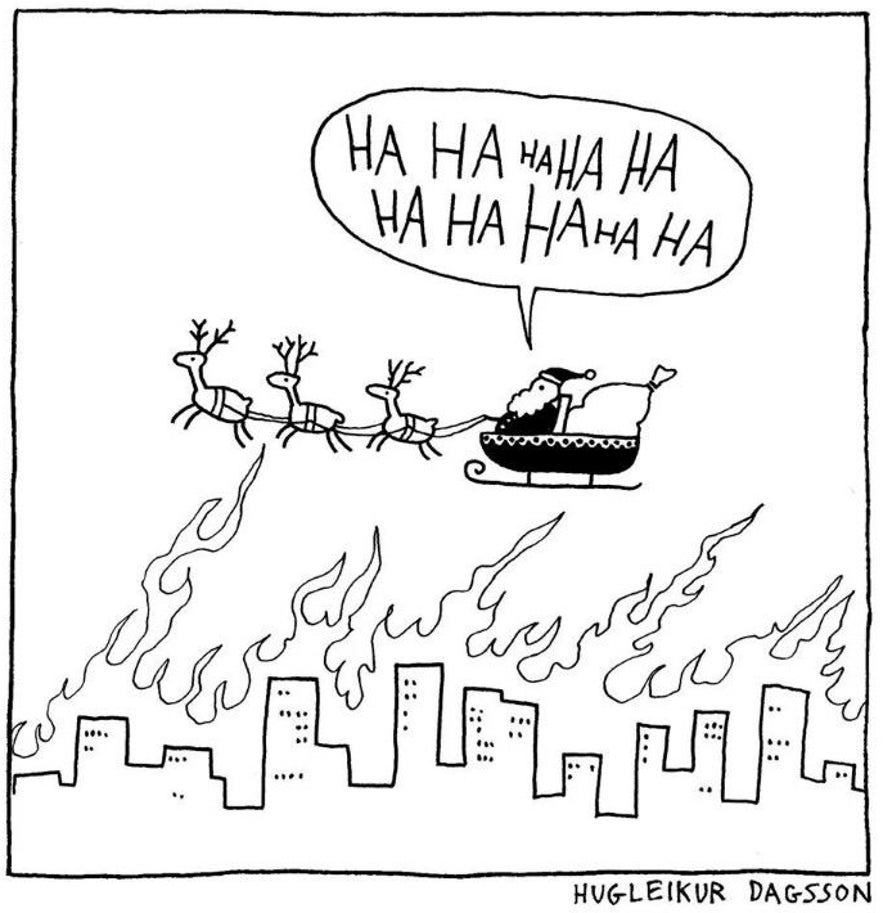
A comic by Icelandic artist Hugleikur Dagsson
A wise man once said that Icelandic people's sense of humor is as dark as their winters, and you'll realize the truth of this as soon as you make a couple of Icelandic friends. When it comes to Icelandic jokes, nothing is too dark; there are not many taboos in Iceland. If anything, the darker jokes are often the most humorous. It's just part of the Icelandic lifestyle.
Even during the Viking era, Icelanders would make jokes to light up the dark days and circumstances. A well-known example is when the famous outlaw Gisli Sursson (from Gisla saga) stabbed his nemesis Vesteinn to death with a spear. Instead of screaming in pain, Vesteinn simply says "hneit þar" before dropping dead, which roughly translates to "you got me there." To put it in context, "hneit" is similar to the word "touché" used in fencing (and general banter) when acknowledging a hit by one's opponent.
So, if you've been saving any jokes that you thought were too dark or morbid for public consumption, perhaps consider testing them in Iceland first.
4. People in Iceland Have a Lot of Monster Trucks
Visitors coming to Iceland seem to be very perplexed by the scale of many of the vehicles. While you have many little two-wheel city cars skirting through the streets, there are a disproportionately large number of massive Super Jeeps with enormous tires. You might only expect to see oversized personal vehicles such as these in places like Greenland, Alaska, and Texas.
These monster trucks do not exist because of their owners' inferiority complexes (although it's fair to be suspicious of those who keep them just to travel around Reykjavik). They're needed to cross the harsh terrain of Iceland's rugged landscapes, particularly in winter.
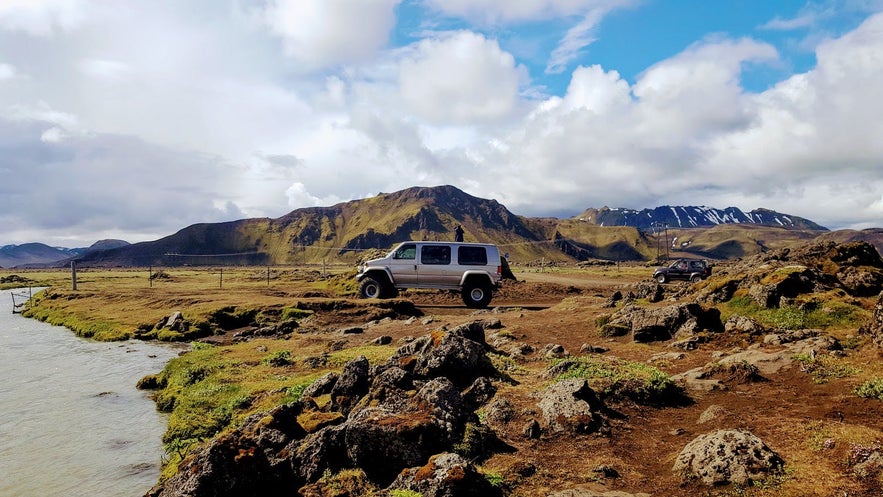
If you leave the paved Ring Road of Iceland, you might find yourself on a dirt track littered with pot-holes, glazed in ice, or broken up by glacial rivers. Only in these circumstances will you feel the value of having a Super Jeep.
In summer, they're essential for getting into the Highlands and traveling along F-Roads, those unpaved gravel paths in remote, mountainous regions. This necessity is particularly true if you're planning on visiting places in the Icelandic Highlands.
Many Super Jeeps are owned by individuals, but tour operators own more. Super Jeep tours are very popular in Iceland, heading to otherwise inaccessible places such as Landmannalaugar, Thorsmork, and Eyjafjallajokull (the volcano that erupted in 2010).
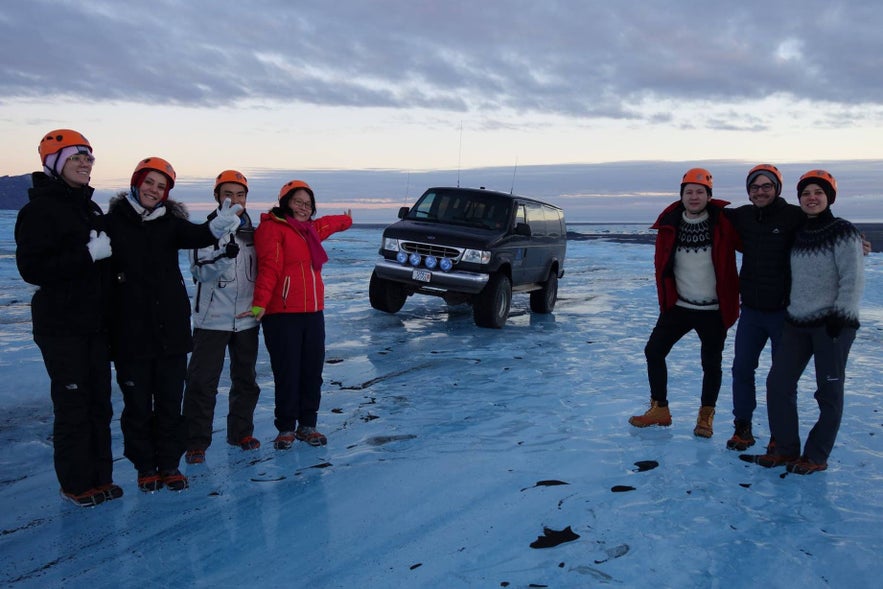 Photo from Crystal Blue Ice Cave | Super Jeep from Jokulsarlon
Photo from Crystal Blue Ice Cave | Super Jeep from Jokulsarlon
One place you'll not (or rather should not) see monster trucks is off-road. Off-road driving in Iceland, across the lava, moss, even the snow, and black sands, is illegal, with enormous fines and a possible prison sentence attached.
Ensure you never leave the road or path you are driving on, lest you take a massive hit to your wallet and have to live with destroying the pristine nature of Iceland.
- See also: The Ultimate Guide to Driving in Iceland
3. Icelanders Are Naked and Unafraid
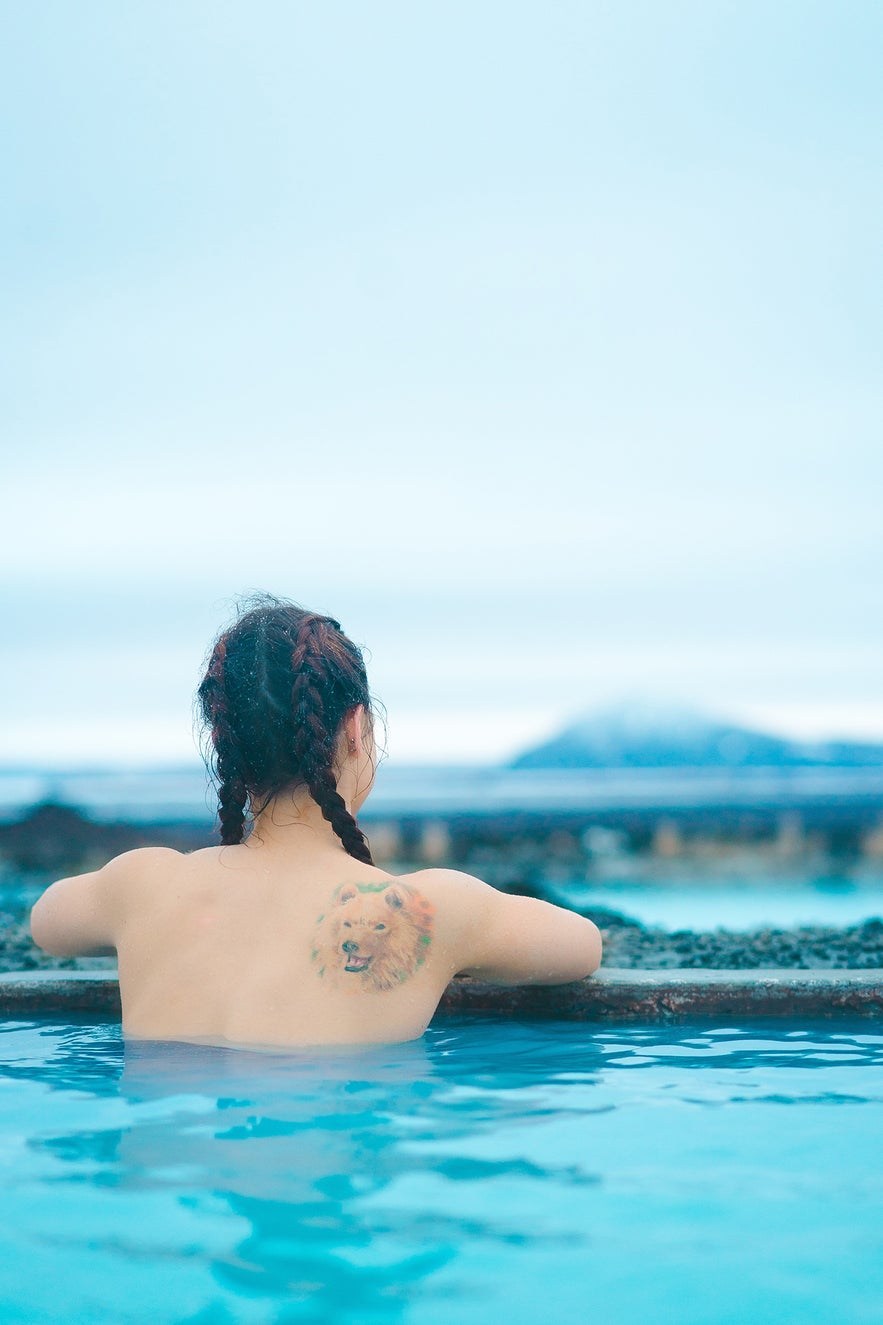 While showering before swimming is standard worldwide, but in Iceland you are required to do it naked and, in some cases, publicly. This requirement is because most of the pools in Iceland are not heavily chlorinated, so fellow bathers and swimmers need to be confident that the waters they will be entering are clean.
While showering before swimming is standard worldwide, but in Iceland you are required to do it naked and, in some cases, publicly. This requirement is because most of the pools in Iceland are not heavily chlorinated, so fellow bathers and swimmers need to be confident that the waters they will be entering are clean.
- See also: The Best Swimming Pools in Reykjavik
There's nothing sexual or perverse about it. Most people just get naked, shower, and move on.
If the thought of it embarrasses you, the best course of action is to simply grit your teeth, close your eyes, and do it. Just keep in mind that this is a communal experience and everybody is in the same boat and can't wait until they get to soak in the warm waters of the geothermal pool or lagoon.
Thankfully for the reserved, in the most popular pools, such as the Blue Lagoon or Sky Lagoon, there are places you can wash and dress privately.
The inhibitions of locals are not only absent in the changing rooms. Many Icelandic people bathe naked in certain natural hot springs or jump naked in the sea. If you want to immerse yourself in Icelandic culture and do the same, make sure that the hot pool you are going to doesn't have anyone else in it and is safe for bathing (you can't expect everyone to be as free-spirited as yourself).
Now you should know that Icelanders are not squeamish when it comes to nudity in pools and showers. Additionally, breastfeeding is also not frowned upon in public. A member of the Icelandic parliament made international news headlines a few years ago when she breastfed her child while attending a session of parliament. This was not considered a big deal in Iceland but raised a lot of eyebrows worldwide.
Try to accept this aspect of Icelandic culture and know that you may witness an exposed breast or two. It's hardly the worst concession one can make while traveling.
2. The People of Iceland Come From Viking Settlers from 1000 Years Ago
Norse Vikings first settled Iceland in the late ninth and early tenth centuries, and for the next thousand years, the population hovered between 10,000 and 50,000. Only in the last century have those numbers increased, but even today, there are only around 380,000 native Icelanders.
The result is that most modern Icelandic people have descended from a relatively small gene pool and, as such, are quite genetically homogeneous. That, combined with its detailed genealogical records (including the unique last name methodology), Iceland is a favorite among geneticists.
In the early 1900s, researchers first became interested in the genetic traits of Icelandic people; however, only recently, with digital technology and genome mapping, have scientists been able to maximize their research.
Photo by Regína Hrönn
There's a common misconception about Iceland circulating online that Icelanders use a dating app that shows how related people are to each other. That's simply not true. What Iceland has is a very extensive genealogical database that was created using the detailed records that Icelanders have diligently kept since settlement times.
Additionally, in 1703, the world's first complete census of a country was compiled in Iceland, with 10 additional censuses compiled in the 19th century. These historical records give invaluable information about genealogy, which Icelanders can conveniently look up online if they're curious about their ancestors. This database, called Islendingabok (The Book of Icelanders), was opened to all Icelanders in 1997.
1. Iceland Is the Best in the World! (per capita)

"Per capita" is one of the most used phrases in Iceland. With just over 380,000 people, Icelanders suffer from a small nation complex. To make up for it, we claim we are, in fact, "The Best Country in the World" for various reasons.
People in Iceland will claim that this statement is true and get mockingly upset if you disagree, reciting one article or another in which Iceland comes out on top, always citing statistics "per capita."
Icelanders have the most beautiful women in the world per capita because we won the Miss World competition four times. Icelanders also have the strongest men per capita, having had three individuals win the World's Strongest Man competition, winning it nine times in total.
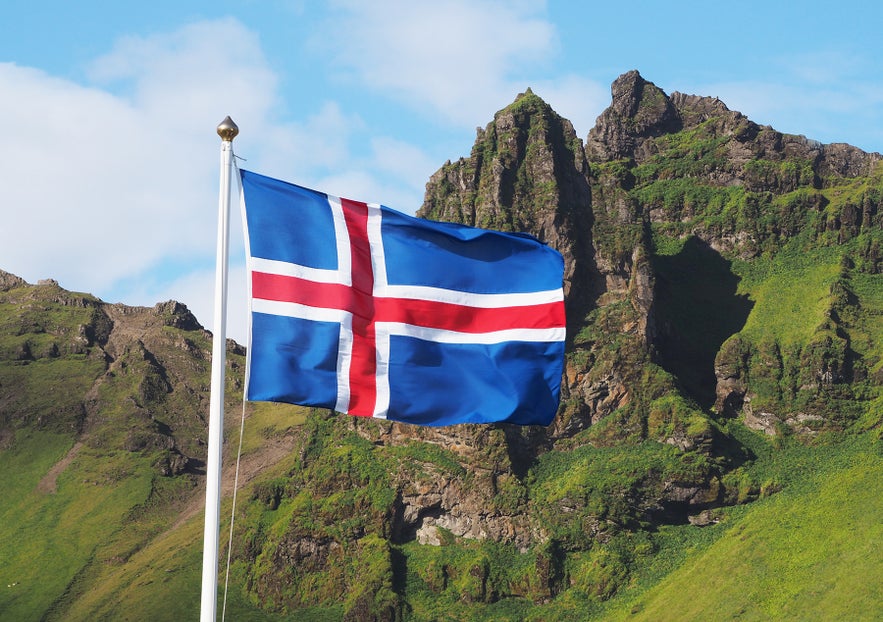 Icelanders also have the best handball team in the world per capita, the best soccer team in the world per capita, produce the most music and bands per capita, and read and write the most books per capita. The list goes on and on. It's even a catch-phrase: "Ísland, bezt í heimi," which translates to "Iceland, best in the world" (using the letter "Z" as a tongue-in-cheek reference to the past, as the letter was abolished from the Icelandic alphabet in 1973).
Icelanders also have the best handball team in the world per capita, the best soccer team in the world per capita, produce the most music and bands per capita, and read and write the most books per capita. The list goes on and on. It's even a catch-phrase: "Ísland, bezt í heimi," which translates to "Iceland, best in the world" (using the letter "Z" as a tongue-in-cheek reference to the past, as the letter was abolished from the Icelandic alphabet in 1973).
Though mostly said in jest, there are ways that Icelanders can say their nation is the best in the world without needing to add a rushed "per capita" under their breath. For instance, Iceland regularly tops lists for the most gender-equal country in the world, the most peaceful country in the world, the most gay-friendly country in the world, the cleanest energy in the world and, of course, the most natural beauty in the world.
What did you find most unusual about the culture in Iceland and Icelandic people in your travels? Are any of the oddities on this list that are similar to your home country? What traits of your nationality would people in Iceland consider bizarre? Let us know in the comments below!
関連記事

アイスランド人も怒り心頭!観光客の迷惑行動7つ
(写真: Morgunblaðið) アイスランドでは近年観光業が大きな成長を遂げていますが、人が増えれば困った人も増えるもの。アイスランド人を絶句させた困った観光客は一体何をしたのでしょうか? 近年、アイスランドでは観光がブームです。2008年の経済危機により、この美しい国は外国人旅行者にとって以前より安く行ける国となりました。 まず始めに、この観光ブームは多くの恩恵をもたらしてきこと...もっと読むアイスランドのレスキュー隊
アイスランドのレスキュー隊とはどんな団体なんでしょうか? レスキュー隊の一員になることはできるのでしょうか? どれくらいのレスキューチームがあって、誰を助けているのでしょう?アイスランドではどんな緊急事態が発生するのでしょうか? アイスランド人は、自国のレスキュー隊に大変な誇りを持っています。レスキュー隊は皆優秀なプロで、その優秀さから国際的にも注目を浴びています。国中に散らばる約100の...もっと読む
アイスランドのクリスマス|伝統、習わし、食事など
アイスランドのクリスマスって何をするの?日本やヨーロッパの他の国のクリスマスと違う?ユールラッズって何?サンタクロースが13人いるってどういうこと?アイスランド独自のクリスマスの伝統やならわし、食事の習慣、観光情報まで、クリスマス時期のアイスランドにまつわる情報をお届けします! アイスランド語ではクリスマスを「ヨゥル」(jól)と言います。ヨゥルはアイスランドで最も大切な行事であり、家族が集まっ...もっと読む

アイスランド最大の旅行アプリをスマートフォンにダウンロード。旅のすべてを1か所で管理できます。
アイスランド最大の旅行マーケットプレイスをポケットに。スマートフォンのカメラでQRコードを読み取り、表示されるリンクをクリックしてください。電話番号またはメールアドレスを入力すれば、SMSやEメールでもダウンロードリンクを受け取ることができます。
